Vocabulary improvement Worksheets for Ages 4-7
6 filtered results
-
From - To
Discover our engaging "Vocabulary Improvement Worksheets for Ages 4-7," designed to make language learning fun and effective. Perfectly crafted for young learners, these printable worksheets focus on essential vocabulary-building skills such as word recognition, spelling, and usage. Each activity encourages interactive learning through colorful illustrations and stimulating exercises, promoting better comprehension and retention. Ideal for both classroom and home use, our resources support early literacy development and ignite a passion for words in your child. Help your little ones expand their vocabulary foundation with these specially designed, enjoyable worksheets. Explore our collection today!
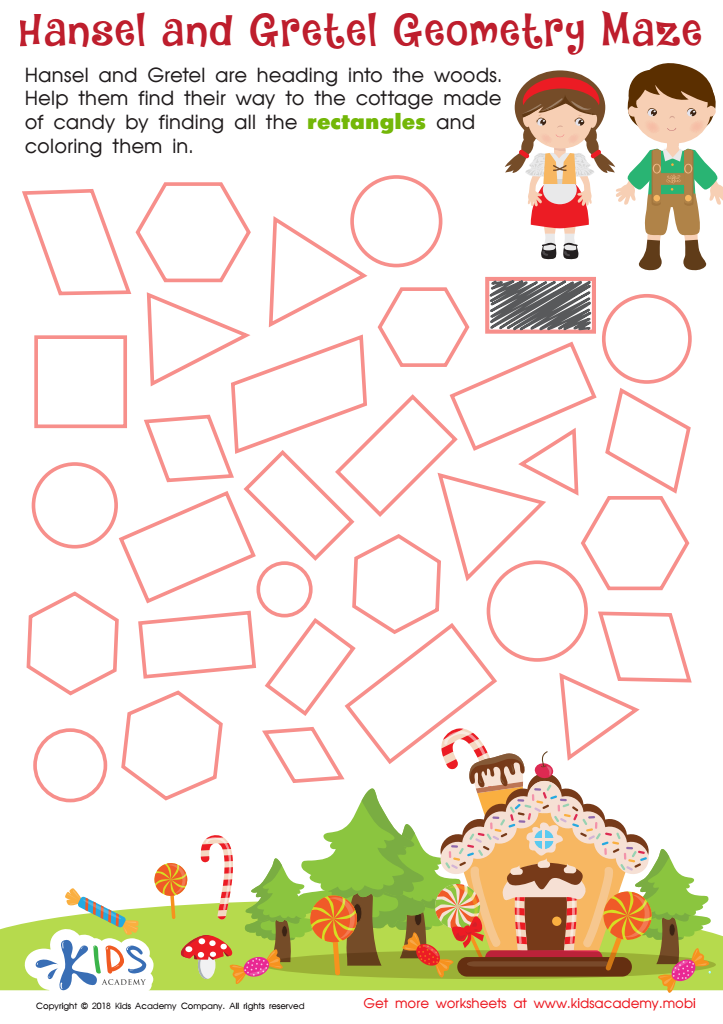

Hansel and Gretel Geometry Maze Worksheet
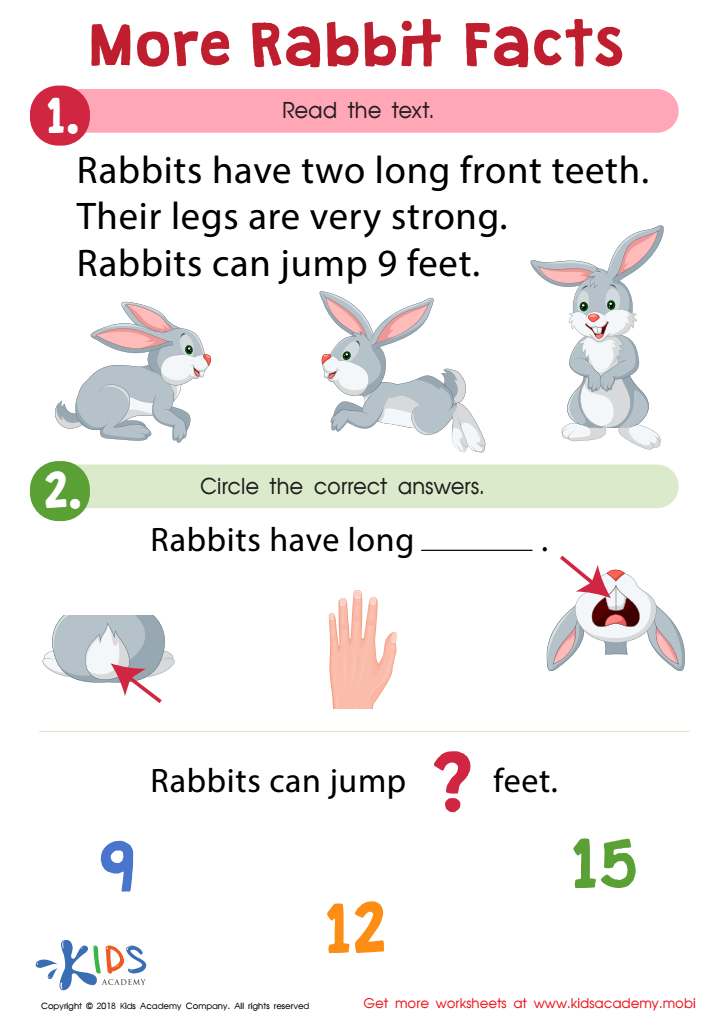

More Rabbit Facts Worksheet
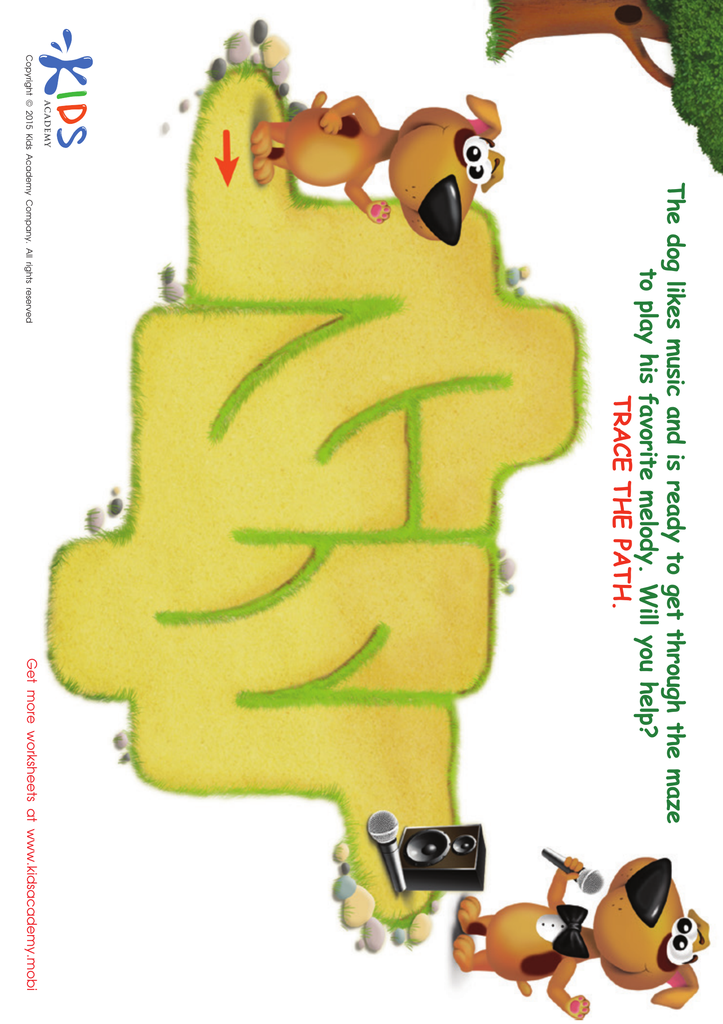

Singer Maze Worksheet
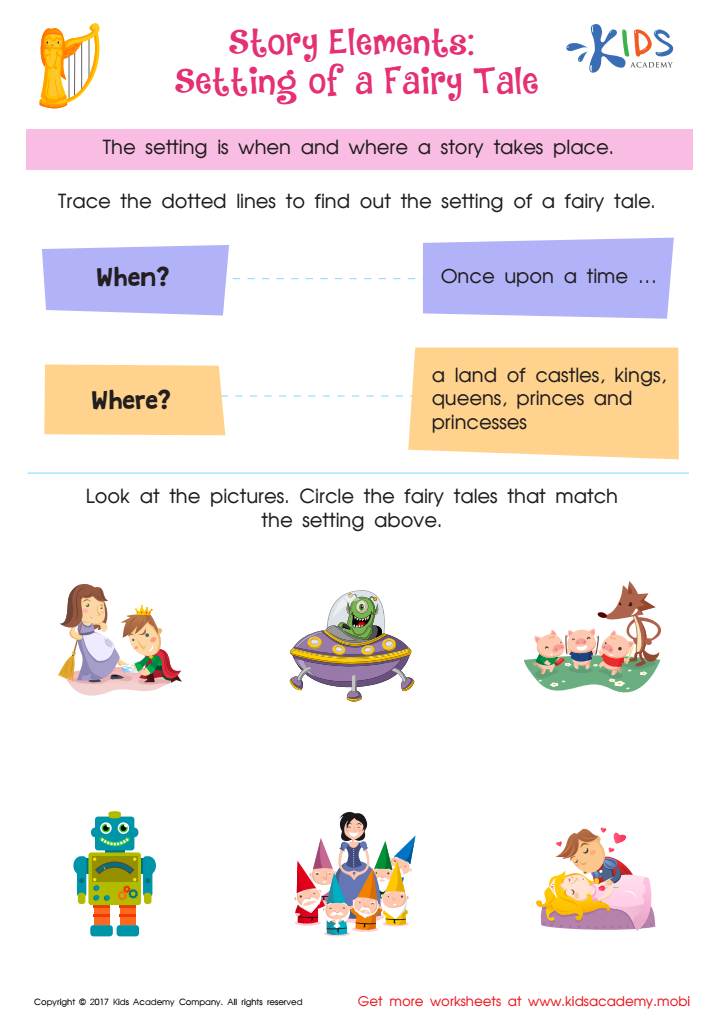

Story Elements: Setting of a Fairy Tale Printable
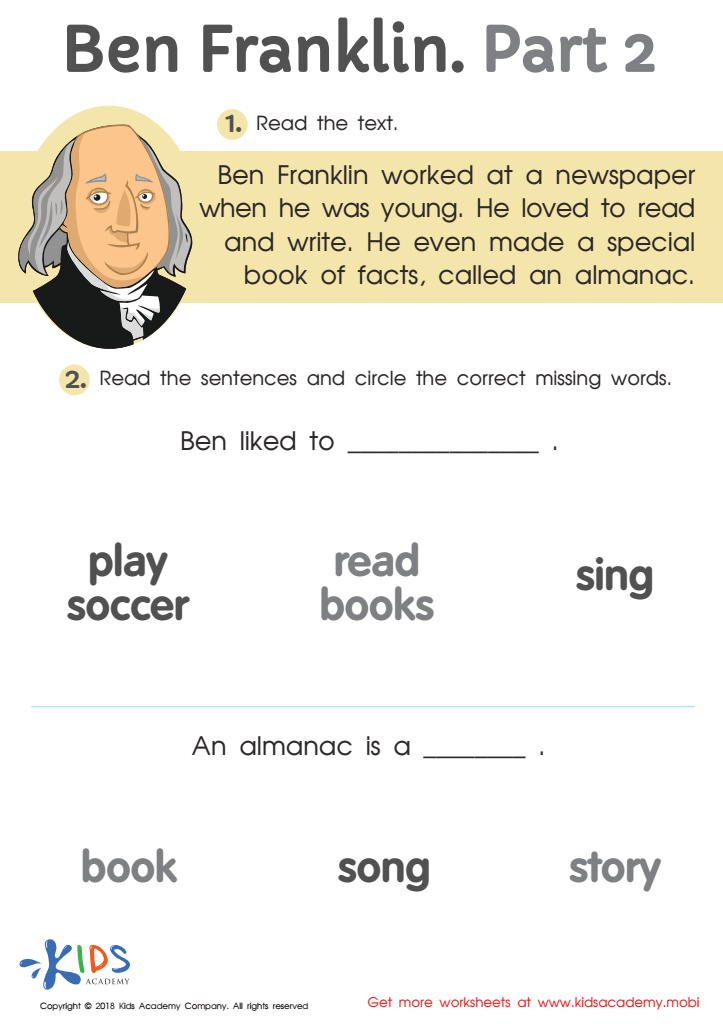

Ben Franklin Part 2 Worksheet
Vocabulary improvement in children aged 4-7 is crucial for several reasons. First, a robust vocabulary is foundational to effective communication. Children with a rich vocabulary can express their thoughts, feelings, and ideas more clearly, leading to better social interactions and stronger relationships.
Second, vocabulary development is closely linked to reading comprehension and overall academic success. When children know the meanings of words, they can understand stories and informational texts better, laying the groundwork for future learning in all subject areas.
Third, developing vocabulary enhances cognitive skills. When children encounter new words, they learn to categorize and make connections between concepts, boosting their critical thinking and problem-solving abilities. Additionally, learning new words and their meanings increases children’s curiosity and love for learning, making them more motivated and engaged in educational activities.
Finally, early vocabulary enrichment can help mitigate educational disparities. Children from diverse linguistic and socioeconomic backgrounds might access differing levels of vocabulary enrichment at home. Early intervention by parents and teachers ensures that all children have a level playing field as they enter the formal education system.
Overall, prioritizing vocabulary improvement for children aged 4-7 sets the stage for emotional, social, and academic success throughout their lives.

 Assign to My Students
Assign to My Students


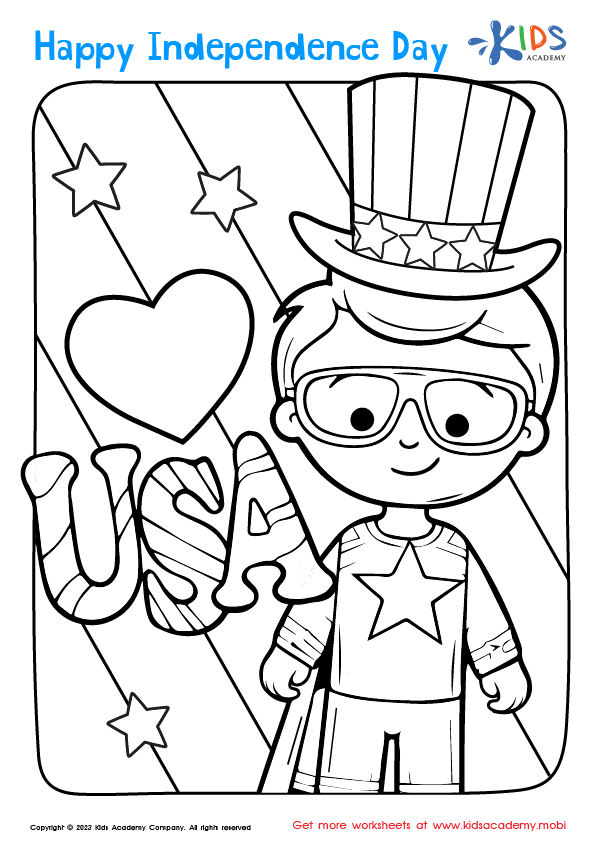



.jpg)



.jpg)










